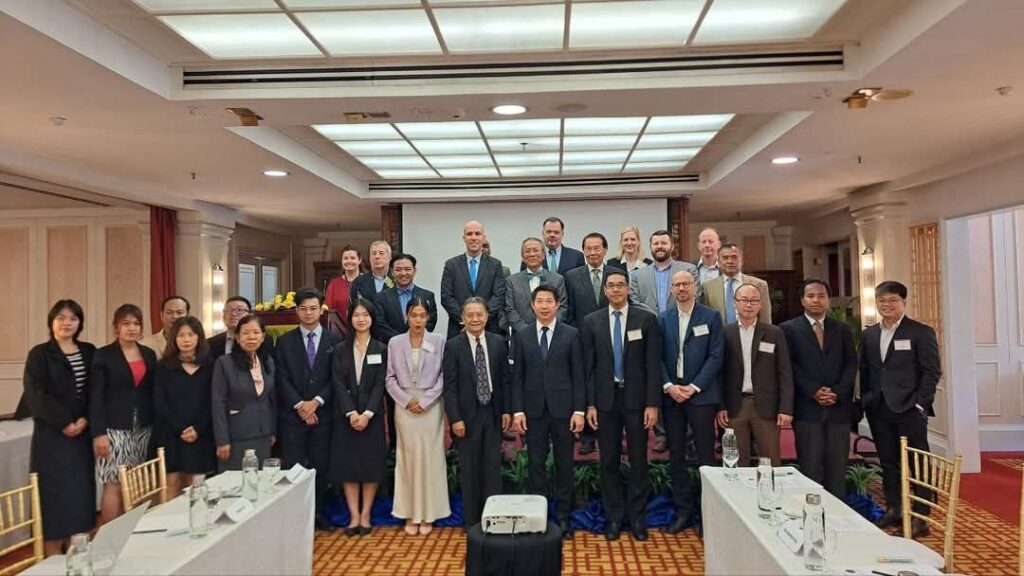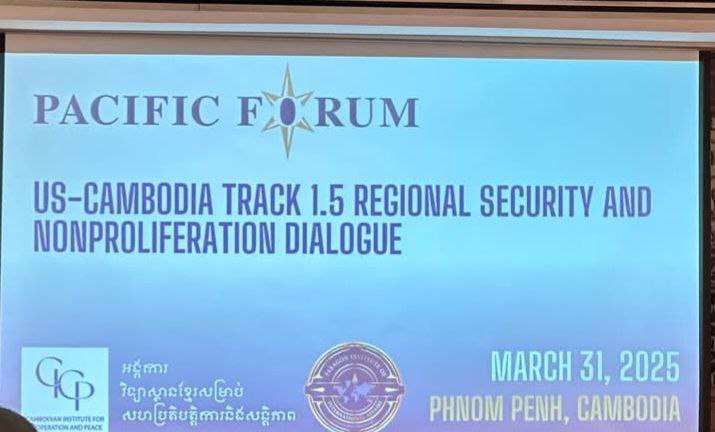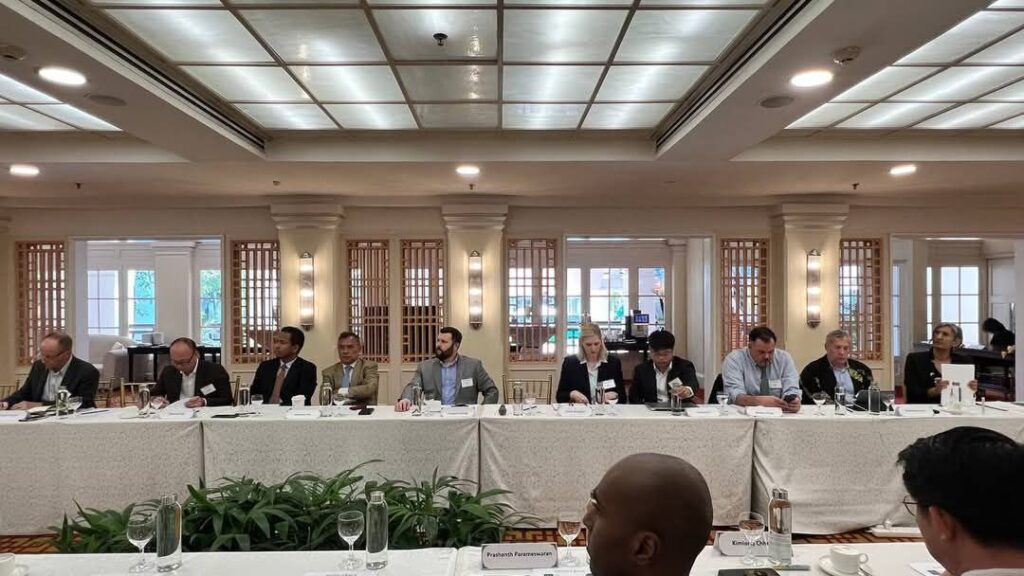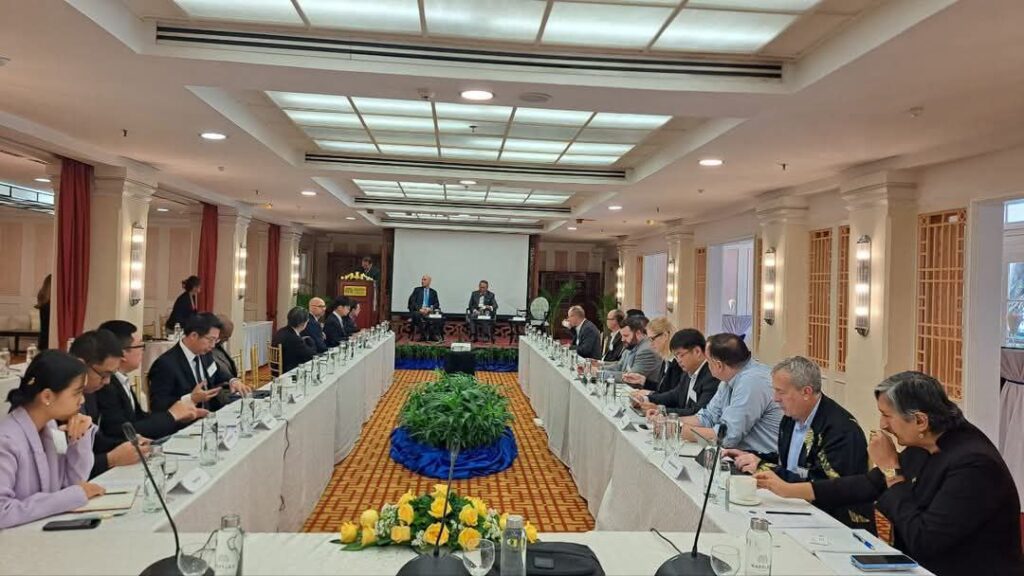I was invited to attend the US-Cambodia Track 1.5 Regional and Nonproliferation Dialogue on 31 March 2025 at Raffles Hotel Le Royal organized by the Pacific Forum, Cambodian Institute for Cooperation and Peace, and Paragon Institute of International Affairs.
The meeting discussed key trends, including regional security & and strategic competition; economic partnership & trade relations; strategic competition & regional stability; and nonproliferation & and nuclear issues. During the dialogue, I raised three points and a question:
– Since the signing of the Paris Peace Agreements in 1991, the US has been a very important bilateral partner which has supported Cambodia’s nation-building process in all fields including institutional development, governance, democracy, human rights, military, law enforcement, trade preferential treatments, economic development, healthcare, education, technology, innovation, demining, gender and youth empowerment, and climate change. Cambodian people are thankful for US assistance to support the country’s positive developments in the past 35 years. The US has been and continues to be a crucial supporter to Cambodia, in addition to the Kingdom’s other important partners, including China.
– Regionally and globally, Cambodia is a beneficiary of the US’ important presence in the region and Washington’s global leadership. Despite all the challenges in the current regional and global order, Cambodia as a small state needs to navigate these difficult trends. Navigating this challenge, Cambodia needs support and cooperation with key partners, including the US and China.
– Cambodia remains committed to enhancing good relations with the US. There remain challenges in the relationship between the two countries, including trust deficit.
– In this context, how can Cambodia and the US work together to enhance mutual trust and mutual benefits in bilateral relations?
I learned a lot and want to thank and congratulate the organizers for hosting this important dialogue.
Him Raksmey
Executive Director
Cambodian Center for Regional Studies




